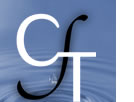 |
||||||||||
A Community of Scholars -
The Teaching Fellows Mentoring Workshop
Workshop Overview
According to Adviser, Teacher, Role Model, Friend, students in science and engineering laboratories often struggle to build relationships with faculty, so they "find their mentor elsewhere - perhaps a fellow student ... [or] a wise friend" (National Academy of Sciences, 1997, p. 2). This workshop is designed to help develop "fellow students" and "wise friends" into effective mentors.
The 12-hour workshop, part of the HHMI - Community of Scholars program at Vanderbilt University, is offered to teaching fellows (advanced undergraduates, graduate students, and post-docs) who serve as mentors to undergraduate research interns (rising freshmen and sophomores) working in biological science laboratories, funded by the Howard Hughes Medical Institute. The workshop occurs immediately before the undergraduate interns arrive for the 9-week Community of Scholars summer research program.
The workshop has five broad goals. By the end of the workshop, Teaching Fellows will:
- Be familiar with core principles about how people learn scientific knowledge and procedures;
- Have practiced several techniques for giving and receiving feedback in a lab setting;
- Have reflected on their own strengths and weaknesses as a mentor;
- Have spent time designing and receiving feedback from other workshop participants on their intern's research project;
- Be a part of a community of mentors who will work together through the summer program.
The workshop is grounded in the literature on mentoring, publications on STEM education reform such as Bio 2010 (National Research Council, 2003), and the principles from cognitive science as summarized in Bransford, Brown, and Cocking (eds.), How People Learn (National Research Council, 2000).
We focus particular attention on the design of challenging yet achievable research projects for the undergraduate interns. By the workshop's end, mentors have developed both a research project for each intern and a plan to support the intern as she grows in knowledge, skill, and confidence during the summer program.
We also concentrate on applying core principles from cognitive science research to help the interns learn both the technical procedures and the biological concepts that are the foundations of lab work. Building on How People Learn, we explore:
- What it means to be a novice or an expert in a field, and how expertise can be developed through "cognitive apprenticeship";
- The centrality of prior knowledge, beliefs, and habits in the learning process, and what mentors can do to help interns identify what they really understand, rather than what they might appear to know or incorrectly believe they know;
- The differences between procedural and conceptual learning, and how best to support interns in both during the summer program.
The workshop is divided into four 3-hour sessions, typically stretching over two days. Detailed facilitator notes and materials are available here:
Session 1: Emphasizing the differences between novice and expert learners.
Session 2: An introduction to project design
Session 3: Assessment, feedback and mistakes
Session 4: Learning in community, and more project design
Prior to the workshop, participants receive the following materials:
- A workshop agenda, and
- a few instructions about how to prepare for the workshop.
More about this workshop and website:
This workshop has been developed over the past 4 years by Patricia Armstrong, Laurie Earls, Peter Felten, and Jeff Johnston from the Vanderbilt University Center for Teaching, in close collaboration with Community of Scholars faculty and senior mentors at Vanderbilt.
The workshop specifically described on this website represents the iteration from May 2005. We have continued to make changes to the workshop since that time, however, most notably in the following ways:
- Timing of the workshop: By offering the project design elements of the workshop weeks before the arrival of the interns, the mentors are better able to plan and coordinate projects that are likely to succeed.
- Offering a condensed version of the workshop: Mentors from the Department of Physics and Astronomy's REU program only had one day available, so we combined elements of sessions 1, 2 and 4 into a 5-hour workshop that focused primarily on project design.
We are more than happy to share what we have learned from conducting these mentoring workshops over the past 5-years, but these workshop materials are protected by copyright. You are welcome to use and adapt these materials as long as you meet the following 2 conditions:
- Ask permission to use the materials and explain how you intend to use them;
- Share with us what you learn about the materials by using them.
Questions about the workshop or requests to use/adapt workshop materials should be directed to Jeff Johnston at Vanderbilt University 's Center for Teaching or 615-322-7290.
HOME | ABOUT CFT | PROGRAMS | SERVICES | RESOURCES
Center for Teaching |
General Questions? Web Site Questions? Copyright ©2008 |
